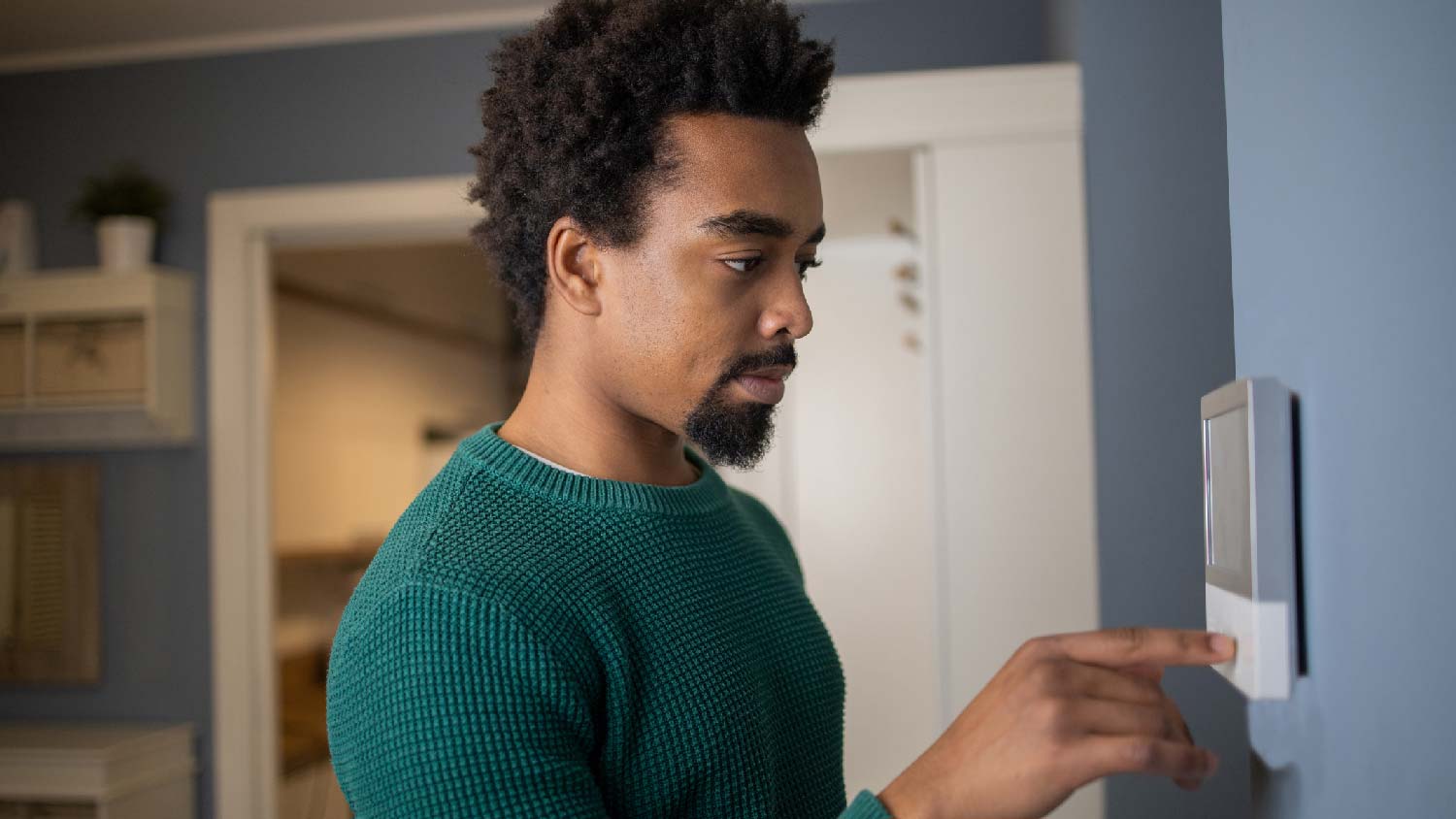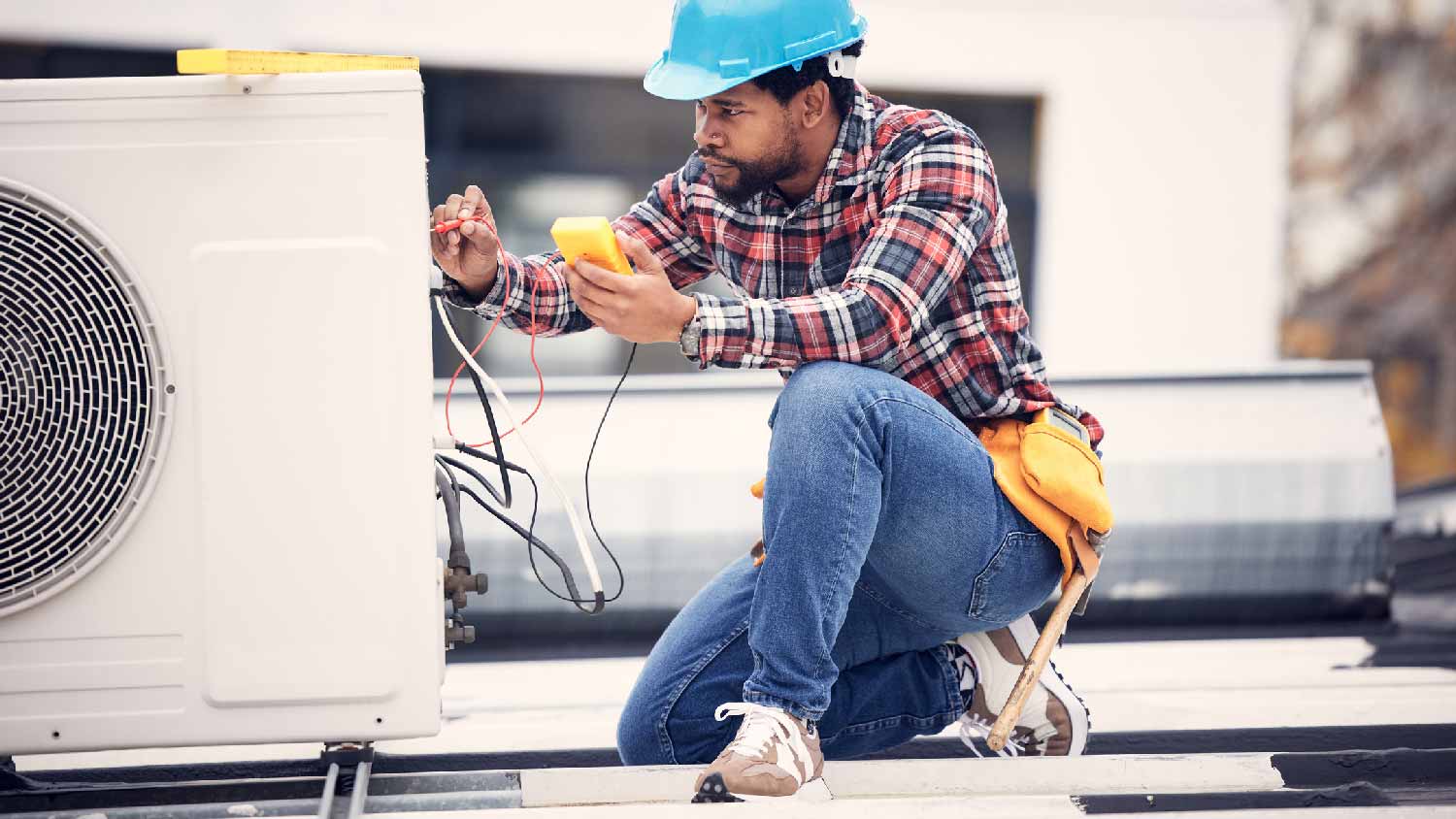
What you’ll pay in Columbus, OH, for furnace repairs depends on many factors. Here’s a breakdown of what can go wrong and the cost to fix those issues.
Take back control of your AC


Your air conditioning should only run when it’s set to “on” or “auto.”
You shouldn’t notice air coming from your vents when the AC is off.
If you do, there might be an issue with your thermostat or AC settings.
Alternatively, you might have a faulty contactor or bad wiring.
Contact an HVAC pro to identify and solve the problem.
It’s been weeks since you’ve used your air conditioning—so why is there air coming out of your vents when the AC is off? There could be a few issues at play, ranging from incorrect AC settings to a lousy thermostat to damaged wiring. Here are four of the most common reasons for air blowing out of your vents, as well as the next steps for fixing each one.
Let’s start with a simple explanation for why air comes out of your vents when the AC is off: Your air conditioner is on the incorrect setting.
Most modern units let you set your AC fan to “on” or “auto” to run your air conditioner. If your system is usually set to “auto,” it will turn itself on until your home reaches a certain temperature. Then, it will shut off on its own. However, if someone in your house switches your AC to the “on” setting, your system will run constantly and keep blowing air out of the vents until you change the setting to “auto” or “off.”
Because of this, it’s a good idea to review your AC settings and confirm that your system is off before you get deeper into the troubleshooting process.

Similarly, thermostat problems are another possible reason that air blows while your AC is off. Like the other parts of your HVAC system, your thermostat can wear down over time and require repairs. Sometimes, the solution might be as simple as changing the batteries or cleaning your thermostat. Other times, you might need a full replacement.
To figure out if your thermostat is the issue, make sure it has fresh batteries and then try using it as you normally would. After that, if there’s still air coming out of your vents or your thermostat won’t work, contact an HVAC professional to take a look at it. On average, a new thermostat costs between $110 and $260, with most people paying around $180.
Your contactor is an electrical component between your thermostat and the other parts of your AC unit, including your motor, compressor, and condenser. It works like a switch, controlling the supply of electricity into the unit. During a cooling cycle, the contactor allows electricity into the unit to run and cool your home. Then, when the air conditioning is off, the contactor prevents electricity from entering your AC unit.
Over time, your contactor can collect dirt, attract insects, or get stuck in a certain position. As a result, it may stop working properly—which can force air out of your vents even when your AC is off. Even worse? If you don’t fix it, the constant flow of electricity can put unnecessary strain on your HVAC system and increase your energy bills.
If there’s a problem with your contactor, you might hear a clicking noise coming from your AC unit. At this point, you’ll need to contact an HVAC pro to diagnose and fix the issue.

In an HVAC system, wires distribute electricity to various parts of the system. With repeated use, these wires may become damaged or get disconnected, which can interrupt the flow of electricity between certain components of your HVAC system.
For example, let’s say some of the wires between your thermostat and AC unit are frayed, which causes your system to short-circuit. When this happens, your AC unit probably won’t receive the signals your thermostat is trying to send (for instance, to shut off). This could cause several problems, including air coming out of your vents when the AC is off.
If you have this issue, you may see damaged wires or notice a burning smell when your AC runs. Either way, you should stop using your AC and call an electrician or HVAC expert as soon as possible.
With regular maintenance, you can prevent many common air conditioner problems—or at least detect them before they become much more expensive to fix. Here are some tips to keep in mind.
Change dirty air filters. Replacing your old air filters is one of the simplest ways to protect your HVAC system. Aim to swap out your filters every one to three months. Depending on the type of filters you use, this generally costs between $10 and $50.
Clean your air ducts as needed. The Environmental Protection Agency (EPA) recommends cleaning your air ducts if there’s evidence of excessive debris, mold, mildew, or vermin. In most cases, professional air duct cleaning costs around $380, but it can range between $270 and $490.
Have your AC serviced. It’s important to service your AC at least once per year (ideally, in spring) to keep it in good shape. Experts also suggest having your system inspected in the fall as well. A service visit usually costs about $150.
Some of these problems—like checking your AC settings and thermostat—are easy to address on your own. Beyond that, though, it’s best to bring in an expert because HVAC repairs can be complicated and risky since they often involve working with electricity, refrigerant chemicals, and tight spaces.
Depending on what’s causing air to leak out of your vents, you may need to replace parts of your AC unit, thermostat, or ductwork. Hiring an HVAC technician can help you pinpoint the issue and let you know if you need to hire another specialist, like a local duct installer.
While air duct cleaning hasn’t been proven to prevent respiratory problems, it’s not a scam. While it’s unlikely that dirty ducts are solely responsible for poor air quality, they may be a contributor. Homes with very low air quality or residents sensitive to dust or mold would likely benefit from a duct cleaning.
From average costs to expert advice, get all the answers you need to get your job done.

What you’ll pay in Columbus, OH, for furnace repairs depends on many factors. Here’s a breakdown of what can go wrong and the cost to fix those issues.

Whether your energy bills are out of control or you can’t keep your home comfortable, it’s good to know what costs to expect before you pay to insulate your ductwork.

A worn AC fan motor can cause your system to overheat. Budget for AC unit fan motor costs, including parts and labor, with this guide.

Buying a new central air conditioner is a big investment, so use our expert guide to make sure you choose the right one and spend your money wisely.

Mold in your air conditioner can show up as fuzzy patches on an air filter or physical symptoms. Here’s what to look for and how to fix it.

Keep your home cool with wall-mounted AC units. Find out what wall cooling is, including pros and cons, as well as installation costs to expect.